15 things of today that our children won't find
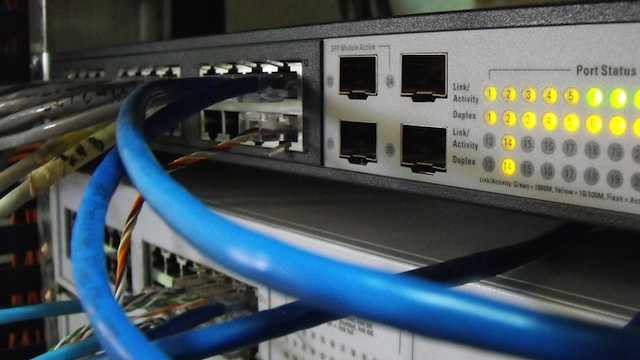
(photo source)
If you think about it, the huge amount of technology that surrounds us today is on the verge of extinction. In this article, I will mention a number of things that, according to various estimates, left to live from 10 to 20 years. And these are not things like VHS or 35mm films, but something that many people use today every day.
Wired home internet
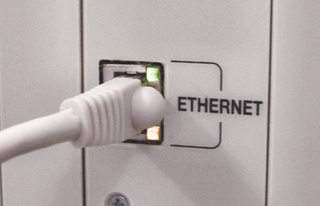 (photo source)
(photo source)Already today, many people at the age of ~ 20 years old dimly remember the times before the advent of broadband Internet
Already today, LTE, in comparison with the wired Internet, provides comparable download speed and even greater upload. But if you use a wireless connection all the time, its price is still excessively high. At some point, after a couple of years, providers realize that it is more convenient to give each user the antenna, and in the long run it is cheaper than building and maintaining the cable network infrastructure in each house. From now on, wireless internet will become cheaper than wired.
Photo and video cameras
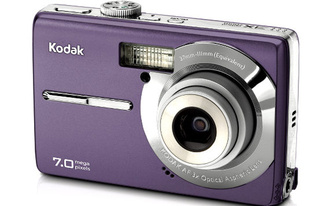 (photo source)
(photo source)Cameras in smartphones have almost killed the market for cheap cameras and amateur camcorders. Unlike the camera, which we take with us only when we think we need it, the smartphone is always with you. In addition to the camera and camcorder, the characteristics of which are pretty good, the smartphone provides various filters for editing images on the fly, as well as the ability to immediately share photos with friends on the network. Some smartphones also have functions that are not typical of budget cameras. For example, Intel's SP-A20i has a high-speed shooting mode of up to 10 fps.
Professional "SLRs" will not go anywhere, but after a few years the average user will forget about the camera and camcorder as separate gadgets.
')
Landline phone
 (photo source)
(photo source)According to data for 2010, 26% of homes in the United States did not have a wired telephone. It is expected that already in 5 years only a few of the elderly, but marginals will use the "home phone". And after 10 years, most companies will give up wired phones, saving a lot of money and avoiding many difficulties.
(By the way, a couple of months ago, the phones disappeared from the tables in the Moscow office of Intel. So far, the impressions of this venture are very positive.)
And “the home phone is very often called, trying to sell something that is terribly annoying ... But this is another story.
Slow computer loading
 (photo source)
(photo source)When was the last time you restarted your PC or laptop? Waiting for the computer to finally boot up has become one of the greatest frustrations of the PC era. With the advent of trends towards the always-on (Always On Always Connected) PC, users of the future will almost never turn off their computers. Instead, a sleep mode will be used, waking up from which takes less than a second. Future operating systems will be able to install updates without requiring a mandatory reboot. Even if for some reason you need to reboot your PC, it will only take a few seconds, thanks to the SSD and fast loading OS, like Win8. But once the PC boot could take a few minutes ...
Window operating system
 (photo source)
(photo source)After 5-10 years, there will be no windows left in Windows. True, the Microsoft OS itself will probably still exist. But the idea that each application is displayed in a separate window with a toolbar and other things will be a thing of the past.
Microsoft has already shown its intention to abandon windows, it suffices to recall the Metro UI. This is an inevitable step (not specifically Metro UI, but the abandonment of windows in their current understanding) in order to make the interface more touch friendly. And if the touchscreens take root, then other operating systems will catch up. And touchscreens will take root, because the price of them falls, users are already accustomed to use them, thanks to smartphones, and soon the touchscreen will already be in every laptop and all-in-one ( All-In-One ).
Hard drives
 (photo source)
(photo source)I also managed to catch computers using tape cassettes for recording data. Then there were 5.25 '' and 3.5 '' floppy disks, small HDDs for IDE ... Maybe someone will remember the ZIP-drive and tape for tape drive. But, no matter how different these means for storing information would look like, at the heart of all of them lies a certain magnetized surface. And the technology itself of magnetic recording in many respects received such a spread because tape recorders ruled the world.
Today, SSDs finally put an end to the practice of storing data on rotating magnetic disks of all sorts and sizes. For lack of moving parts, the theoretical speed limits of SDD are incredibly far, and the SSDs themselves are more reliable. Now the cost of SSD is still quite high compared to the HDD, but the price difference is rapidly declining. SSD sales have been growing all of last year, and the forecasts for the future are also very optimistic. After 5-10 years, you simply can not buy a laptop without SSD. And traditional hard drives will remain the lot of servers and cloud storage, where cheap volume is much more important than performance.


Cinemas
 (photo source)
(photo source)For the first time, the death of cinemas was predicted with the advent of televisions, but this time, cinemas will probably go down in history for several reasons. First, large FullHD televisions are becoming almost mainstream, and 3D is becoming more accessible. Now the average home theater is almost as good as the average multiplex. Secondly, the development of video on-demand has led to the fact that many films can be watched by subscription on the day of the start of shows in the cinema.
And finally, the cost. The average movie ticket costs about $ 12-15, and online viewing of the same movie, which still shows in theaters, will cost $ 5-7 and $ 2-3 if the shows have just ended. Who wants to pay about $ 50 for going to the cinema in a company or with a family, where you will be surrounded by others, not always adequate spectators, dirty chairs and overcooked popcorn (which you can accidentally pour by the neck)? Perhaps there will be small cinemas showing the arthouse and creating some kind of atmosphere, but the standard cinemas will disappear.
Mouse
 (photo source)
(photo source)In the next 5 years, the cost of capacitive touchscreens will fall so much that any screen, from a laptop / all-in-one to a TV, will have a touch interface. Devices like mice and touchpads will not turn into a pumpkin overnight, but their role and popularity will rapidly decrease. Already, the Win8 interface supports work without a mouse, via a touchscreen, even now it is used, at best, sometimes.
(I would also be interested to know what ergonomists think about this. And then there are opinions that touchscreens are more harmful in this respect ... For now, though, not very convincing.)
3D glasses
 (photo source)
(photo source)Since the early 1950s, when the first films in 3D appeared in cinemas, viewers were forced to wear a variety of glasses to enjoy the three-dimensional effects. True, over the past year or so, a lot of 3D technology does not require glasses.
In 2011, Toshiba released a laptop that uses its webcam to track eye movements and creates excellent 3D. True, only for one viewer. Last year, HTC and LG released phones with stereoscopic 3D screens that do not require glasses. The quality of the home theater did not reach, but what did you want from the phone? :)
I think that in 10 years, televisions will be able to offer high-quality 3D, for several viewers at once and without the use of glasses.
Remote control
 (photo source)
(photo source)When I was little, the TV had no remote at all. And each time, to make it quieter or switch the channel, you had to get up and go to the TV.
After 5-10 years, the TV will be controlled either with the help of a smartphone, or with the help of voice and gestures.
However, at the time of the IR ports on mobile phones, it was already possible to use the phone instead of the remote. But then the infrared ports disappeared.
Desktop pc
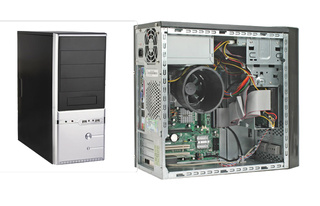
(photo source)
After 5-7 years, PC manufacturers will no longer produce most desktop computers.
Although, perhaps, all-in-one with large screens, workstations and servers (in the form of "blades") will remain.
If you like to assemble PCs from individual parts, then I’m afraid when your children grow up, they will not have such an opportunity.
Phone numbers

(photo source)
I remember my parents' home number and my own. And he and the other has not changed for many years. But how many numbers could you dial from memory instead of just selecting a contact from the address book?
With the advent of VoIP technologies and services such as Skype, Google Talk, etc., you can call someone knowing his username. In 15-20 years,
Prime time television
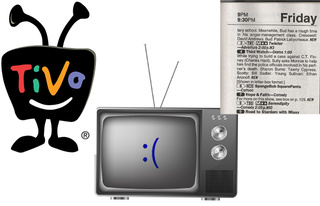
(photo source)
In prehistoric times, people had to gather around their TV in strictly limited time to watch their favorite show. With the advent of VCRs, your favorite show, if you wish, it became possible to enjoy it at any time.
Modern recorders can do without cassettes. And since Since many programs and TV shows are available via video on demand
Fax
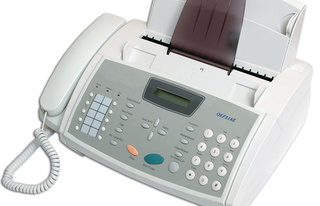 (photo source)
(photo source)In the era of e-mail, instant messengers and 4G, there is only one excuse for the fact that these units from the 70s are still used - signatures. Some companies and their lawyers only accept handwritten documents or a fax with the signature visible. If you don’t like to personally pick up the thresholds, faxing a signed document may be a good idea.
But there are three things that will finally rid the world of faxes. First, more and more companies are starting to accept EDS, which means that the handwritten signature is no longer needed. Secondly, even if you cannot do without the requirement of a handwritten signature, the touchscreen and stylus will allow you to nakaryabat their initials in electronic form. And finally, with the death of corded phones, faxes will die.
Optical discs
 (photo source)
(photo source)Probably another 10 years and the company will stop producing CDs. Regardless of whether it will be a DVD, Blue-ray or something that came after it.
Another 10 years drives will live because buyers will not be too happy to once again pay for a digital copy of what is already in their film library. Yes, there are many rare things that are not found in iTunes and Amazon, but with the growth of streaming video services, physical media will gradually disappear.
And how do you see the future of these things?
Thanks for attention. And I apologize if someone disagrees with the choice of hubs.
Source: https://habr.com/ru/post/205808/
All Articles